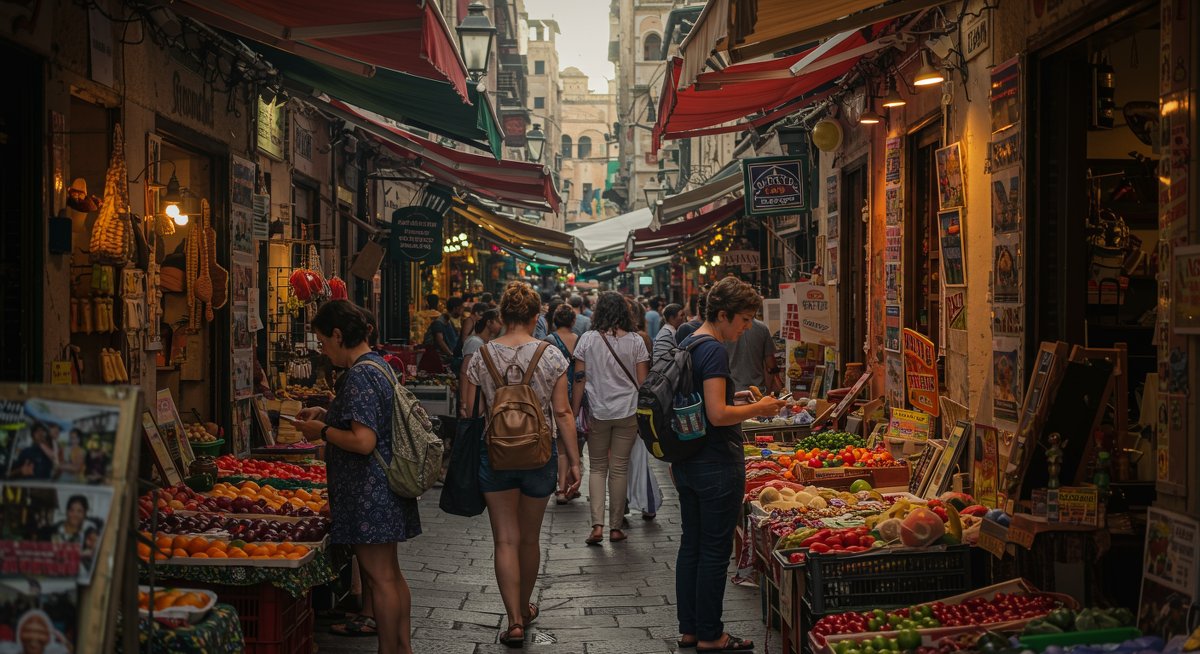
International travel in 2025 doesn't have to break the bank. It's entirely possible to explore the world, even on a budget, and still enjoy an incredible experience. This guide is designed for experienced international travelers like you, seeking to optimize your spending and unlock the best value for your adventures. We'll dive into proven strategies, insider tips and actionable hacks to make your travel dreams a reality without overspending.
Advanced concepts you need to master
To truly maximize your travel budget, you need to go beyond basic money-saving tactics. We're talking about mastering advanced concepts that experienced travelers use to significantly reduce costs without sacrificing quality. Here are some key areas to focus on:
- Dynamic Pricing and Timing: Understand how flight and hotel prices fluctuate based on demand, seasonality and even the day of the week. Knowing the optimal times to book can lead to substantial savings.
- Currency Exchange Optimization: Learn the best methods to exchange currency, minimizing fees and getting the most favorable rates.
- Travel Rewards and Loyalty Programs: Maximize the benefits of credit card rewards, airline miles and hotel points to unlock free flights, upgrades and accommodations.
- Hidden Costs: Identify and eliminate hidden travel expenses, such as baggage fees, airport transfers and data roaming charges.
To begin, consider the true cost of your next trip. Start tracking every dollar spent. You’ll be surprised where you can save.
Professional-level travel strategies
It's time to level up your travel game. Here's a deep dive into professional-level strategies employed by seasoned globetrotters:
Flight Hacking: Mastering the art of finding cheap flights. This includes using flight comparison websites, being flexible with travel dates and destinations, and utilizing tools to track price drops.
Example: Let's say you're planning a trip from New York to Rome. Instead of searching for specific dates, use a flexible date search on Aviasales (if a referral URL is available, otherwise mention Aviasales), and compare prices across different months. You might discover that flying in the shoulder season (e.g., April or October) can save you hundreds of dollars compared to peak summer travel.
Accommodation Optimization: Exploring a diverse range of accommodation options beyond traditional hotels. Consider hostels, guesthouses, Airbnb or even house-sitting to reduce lodging costs. Location is KEY.
Example: Instead of booking a centrally located hotel in Paris, explore options in the suburbs. You can often find charming guesthouses or Airbnb apartments for a fraction of the price, while still having easy access to the city center via public transport. A quick search on Airbnb could reveal savings of $50-$100 per night.
Transportation Strategies: Utilizing public transport, walking and cycling instead of taxis and private car services. Also, research long-distance travel options, such as buses and trains.
Example: When exploring Southeast Asia, consider using buses and trains to get between cities. These are significantly cheaper than flying, and you'll get to experience the local culture. A bus trip from Bangkok to Chiang Mai, for example, might cost you around $20-$30, while a flight could easily double that.
Expert implementation techniques
Knowing the strategies is one thing; implementing them effectively is another. Here's how to put these techniques into practice:
- Set a Realistic Budget: Define your budget before you start planning. Be specific about how much you're willing to spend on flights, accommodation, food, activities and other expenses.
- Use Budgeting Tools: Utilize apps and online tools to track your expenses and stay on top of your spending. Consider using a spreadsheet to track planned and actual costs.
- Embrace Flexibility: Be open to changing your plans if you find a better deal or discover a more affordable option. Be willing to compromise on your original itinerary to save money.
Example: Let's say you're aiming for a $3,000 budget for a two-week trip to Europe. Allocate specific amounts for each category, such as $800 for flights, $700 for accommodation, $600 for food, $500 for activities and $300 for miscellaneous expenses. Use a budgeting app to track your spending in real-time, adjusting as you go. You may discover that your original estimate for food costs is too low and be forced to adjust by eating local street food instead of fancy restaurants.
Case study: High-value travel optimization
Let's examine a real-world case study to see how these strategies work. Imagine a traveler planning a month-long trip to Southeast Asia, with a budget of $2,500.
- Flights: By using flexible date searches and booking flights in advance, they secure round-trip tickets for $600.
- Accommodation: They utilize a mix of hostels, guesthouses and Airbnb, spending an average of $25 per night, totaling $750 for the month.
- Transportation: They primarily use public transport, buses and trains, keeping transportation costs to $200.
- Food: They eat at local markets and street food vendors, spending around $400 for the entire month.
- Activities: They choose free activities like visiting temples, hiking and exploring local markets, and budget $300 for entrance fees and tours.
- Miscellaneous: They allocate $250 for visa fees, travel insurance and other incidental expenses.
This meticulous planning and strategic execution allow the traveler to experience a month-long adventure for under $2,500, maximizing their travel budget.
Risk management for frequent travelers
Experienced travelers understand the importance of risk management. Here are the key areas to consider:
- Travel Insurance: Invest in comprehensive travel insurance that covers medical emergencies, trip cancellations, lost or stolen belongings and other potential issues. It’s a small price to pay for peace of mind. Compare policies.
- Emergency Funds: Set aside an emergency fund to cover unexpected expenses. This could include medical bills, flight cancellations or other unforeseen circumstances.
- Scam Awareness: Be aware of common scams and tourist traps. Research your destination and stay informed about potential risks.
Example: Before your trip, research the local scams in your destination country. In some areas, it is common to overcharge tourists. By doing your research, you can be ready to negotiate.

International travel advantages for experts
Experienced travelers have a unique set of advantages when it comes to budgeting:
- Knowledge of the Travel System: You understand the ins and outs of booking flights, hotels and activities, allowing you to find better deals and avoid costly mistakes.
- Adaptability: You're comfortable with different cultures and environments, making you more likely to embrace budget-friendly options and local experiences.
- Resourcefulness: You know how to find information and solve problems on the go, which is essential when traveling on a budget.
Scaling and automation strategies
For the ultra-savvy traveler, here are some ideas:
- Automated Price Alerts: Set up price alerts on flight comparison websites and hotel booking platforms to be notified when prices drop.
- Loyalty Program Stacking: Combine multiple loyalty programs to earn rewards faster. For example, use a credit card that earns airline miles, and book your flights and hotels through partner programs to earn even more rewards.
- Travel Hacking: Master the art of travel hacking by using credit card rewards to get free flights and accommodation.
Pro-level travel insights
- Embrace the Shoulder Season: Traveling during the shoulder season (the months between peak and off-peak seasons) offers a sweet spot of good weather, fewer crowds and lower prices.
- Consider Remote Work: If you have the flexibility to work remotely, consider staying in a destination for an extended period. This can significantly reduce your accommodation costs and allow you to immerse yourself in the local culture.
- Leverage Free Activities: Many destinations offer free activities, such as walking tours, museum visits and cultural festivals. Take advantage of these free opportunities to experience the local culture without spending a fortune.
If you're already implementing some of these strategies, you're well on your way to maximizing your travel budget. If you're just starting out, don't be overwhelmed. Start with one or two strategies that resonate with you and gradually incorporate more as you gain experience. And remember, the best way to learn is by doing. Get out there, explore the world, and keep refining your budget travel skills. If you’re on this journey too, I’d love to hear how it goes for you. Happy travels!